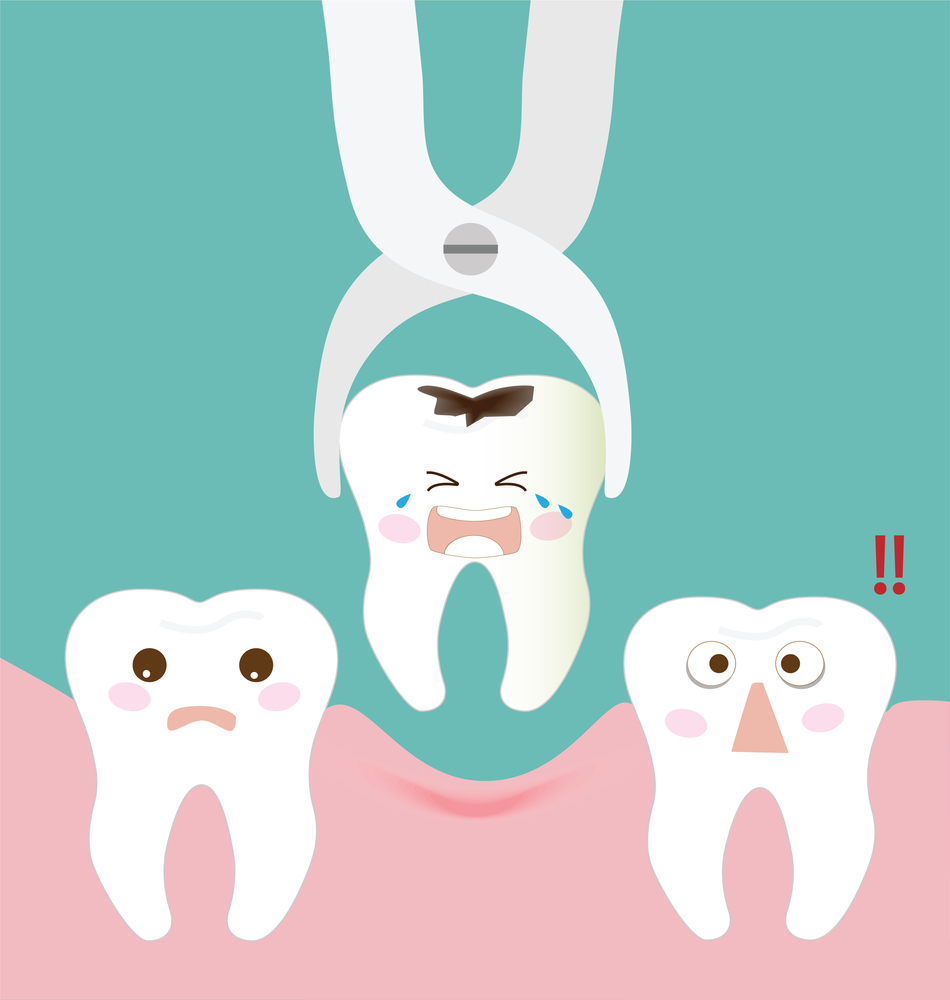When you lose your baby teeth, it can be a scary and rewarding experience. The same probably can’t be said for when you have your teeth pulled as an adult. Permanent tooth extractions are the last course of action when a tooth can’t be saved.
There can be many reasons a dentist may come to this conclusion. In order to prevent tooth extraction and improve oral hygiene, it’s important to know what may cause a person to have their tooth extracted.
What is Tooth Extraction?
 Tooth extraction or oral surgery is a part of dental care when a tooth is removed from the socket. Tooth extractions are typically performed by a dental surgeon, but some periodontists and dentists sometimes perform this procedure as well.
Tooth extraction or oral surgery is a part of dental care when a tooth is removed from the socket. Tooth extractions are typically performed by a dental surgeon, but some periodontists and dentists sometimes perform this procedure as well.
Before a tooth extraction, the oral surgeon or dentist will numb the area with a local anesthetic to prevent the pain that could be experienced. During the extraction, they may begin to cut through gum and bone tissue, grab the tooth with forceps, and gently pull the tooth loose from the jawbone.
Finally, the dentist will pack gauze into the empty socket. When you bite down on this, it can help blood clot quickly and stop the bleeding. Many times, to prevent dry sockets, dentists will stitch the gums closed over the extraction site.
Causes for Tooth Extractions
Dentists and surgeons will extract a tooth when they believe it is irreparable or is causing damage to the rest of the mouth. There are many different reasons a person may require a tooth extraction. These include:
- Overcrowded Teeth – sometimes, the teeth in a person’s mouth can be incredibly overcrowded. This may be caused by a genetic condition that causes you to have extra teeth. This is an issue because the unnecessary teeth begin to block the growth of others and can be very painful in some cases. Dentists will remove the extra tooth or teeth, allowing the rest of your teeth to be aligned properly.
- Tooth Decay – tooth decay is the most common reason a tooth might need to be removed. In severe cases, tooth decay and infections can spread to the jawbone, creating more problems than there should be. In the case where the tooth has deteriorated and a root canal is no longer an option, the tooth will be removed.
- Impacted Tooth – an impacted tooth can’t properly erupt from beneath the gums. This is commonly the case with wisdom teeth because the jaw can’t compensate for the extra room. Dentists perform a tooth extraction on impacted teeth to prevent them from harming any other teeth and to alleviate the pain and pressure.
- Periodontal Disease – better known as gum disease; is caused by an infection in the gums caused by bacteria and plaque. Advanced gum disease will create degenerative gum tissue and infections at the gum line. After a while, periodontal disease will cause teeth to fall out on their own, but a dentist may recommend an extraction to replace the directly affected teeth.
Conclusion
Prevention of these common tooth extraction causes is simple. Brush twice a day, floss once a day, use mouthwash and visit your dentist biannually for routine cleanings. Visiting your dentist will help catch any diseases or infections before they spread and cause dire consequences.







